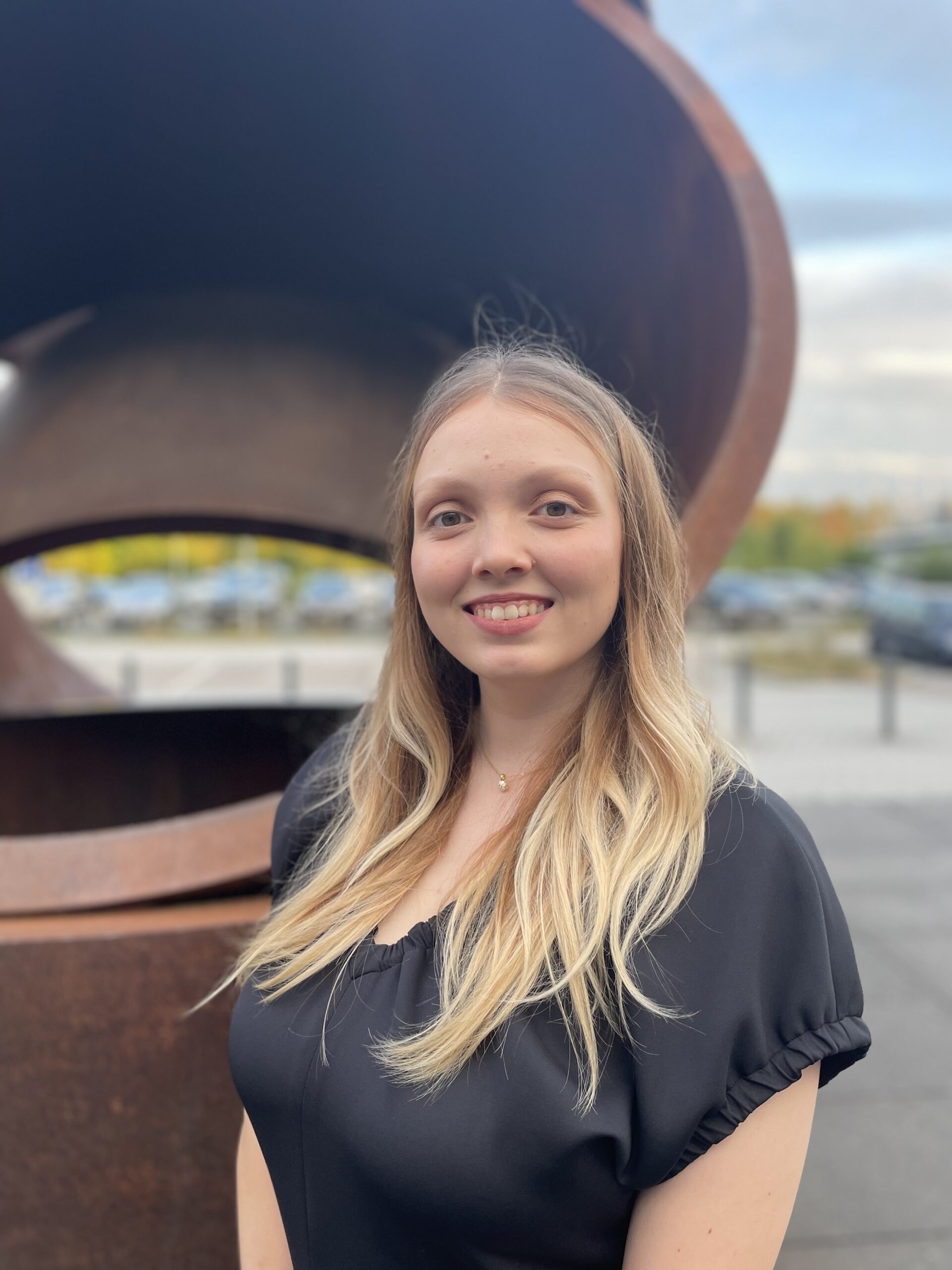
Corinna Seiwerth
Chair of Computer Science 7 (Computer Networks and Communication Systems)
Research associates
Address
Martensstraße 391058 Erlangen
Contact
Short Biography
After completing her high school diploma, Corinna Seiwerth began studying Information Science at the Friedrich-Alexander University Erlangen-Nuremberg (FAU), where she later obtained a master’s degree in Computer Science. During her studies, she gained practical experience as a working student at Siemens Mobility. Since June 1, 2023, she has been working at the Chair of Computer Networks and Communication Systems at FAU. In this role, she is involved in the NFDI4Energy project, focusing particularly on the distributed simulation of energy systems.
More Information
2025
- , , :
D6.3.2.1 Requirements for implementation of distributed simulation for distributed energy systems
(2025)
DOI: 10.5281/zenodo.15746157
URL: https://doi.org/10.5281/zenodo.15746158
BibTeX: Download
(anderer) - , , , , , , , , , , , , , :
D5.2.1.1 Registry of relevant domain ontologies for co-simulation scenario definition
(2025)
DOI: 10.5281/zenodo.14521501
URL: https://doi.org/10.5281/zenodo.14521502
BibTeX: Download
(anderer) - , , , , , , , , , , , , , :
Towards an ontology for co-simulation scenarios of energy systems
2. NFDI4Energy Conference (Karlsruhe, 2025-03-25 – 2025-03-27)
DOI: 10.5281/zenodo.15061652
URL: https://doi.org/10.5281/zenodo.15061653
BibTeX: Download - , , :
D5.3.3.1 Extending a Data-Centric Distributed Simulation Framework for the Energy Domain
(2025)
DOI: 10.5281/zenodo.15268433
URL: https://doi.org/10.5281/zenodo.15268434
BibTeX: Download
(anderer) - , , :
Extending a Data-Centric Distributed Simulation Framework for the Energy Domain
2. NFDI4Energy Conference (Karlsruhe, 2025-03-25 – 2025-03-27)
DOI: 10.5281/zenodo.15064825
URL: https://doi.org/10.5281/zenodo.15064826
BibTeX: Download - , , , , , , , :
D5.3.1.1 Requirements for the Implementation of NFDI4Energy Use Cases
(2025)
DOI: 10.5281/zenodo.14699092
URL: https://doi.org/10.5281/zenodo.14699093
BibTeX: Download
(anderer) - , , , , , , :
Towards a Simulation-as-a-Service Hub for the Energy Domain
2. NFDI4Energy Conference (Karlsruhe, 2025-03-25 – 2025-03-27)
DOI: 10.5281/zenodo.15065996
BibTeX: Download
2024
- , , , :
Research Software Engineering in the Energy Domain as Part of NFDI4Energy
Conference for Research Software Engineering in Germany (Würzburg, 2024-03-05 – 2024-03-07)
Open Access: https://events.hifis.net/event/994/contributions/7829/
URL: https://events.hifis.net/event/994/contributions/7829/
BibTeX: Download - , , :
Towards a Data-Centric Distributed Simulation Framework for the Energy Domain
1. NFDI4Energy Conference (Hannover, 2024-02-20 – 2024-02-21)
DOI: 10.5281/zenodo.10658172
URL: https://zenodo.org/records/10658172
BibTeX: Download - , , , , , , :
Drivers and Challenges of Open Data from an Energy Industry Perspective
1. NFDI4Energy Conference (Hannover, 2024-02-20 – 2024-02-21)
DOI: 10.5281/zenodo.10658531
URL: https://zenodo.org/records/10658531
BibTeX: Download
-
National Research Data Infrastructure for Interdisciplinary Energy System Research
(Third Party Funds Group – Overall project)
Term: 2023-03-01 – 2028-02-28
Funding source: Deutsche Forschungsgemeinschaft (DFG)The necessary transformation of energy systems towards net zero greenhouse gas emissions provides a plethora of new research challenges. New interconnections between different energy sectors, such as power, heat and mobility, increase the system’s complexity. In this context, the digitalisation towards cyber-physical energy systems (CPES) alleviates change, and equally affects technical, social, and societal topics, as well as the mode of research in the CPES research community. Research efforts towards CPES heavily rely on modelling and (co-)simulation-based approaches. Tracking of models together with all data creates a complex software and data management challenge, which needs to be addressed in each research project. To this end, nfdi4energy covers the whole research and transfer cycle of projects in energy system research ranging from (1) identifying relevant competences for a project; (2) defining relevant scenarios and experimental setup; (3) integrating models and data; coupling tools and laboratories; (4) extracting results, facilitating public consultation; to (5) identifying research challenges for follow-up activities.